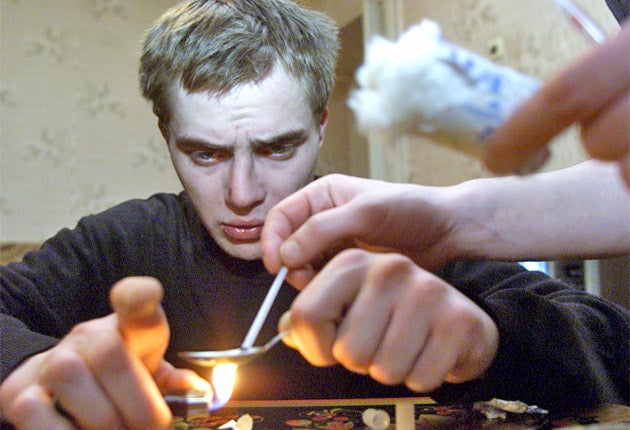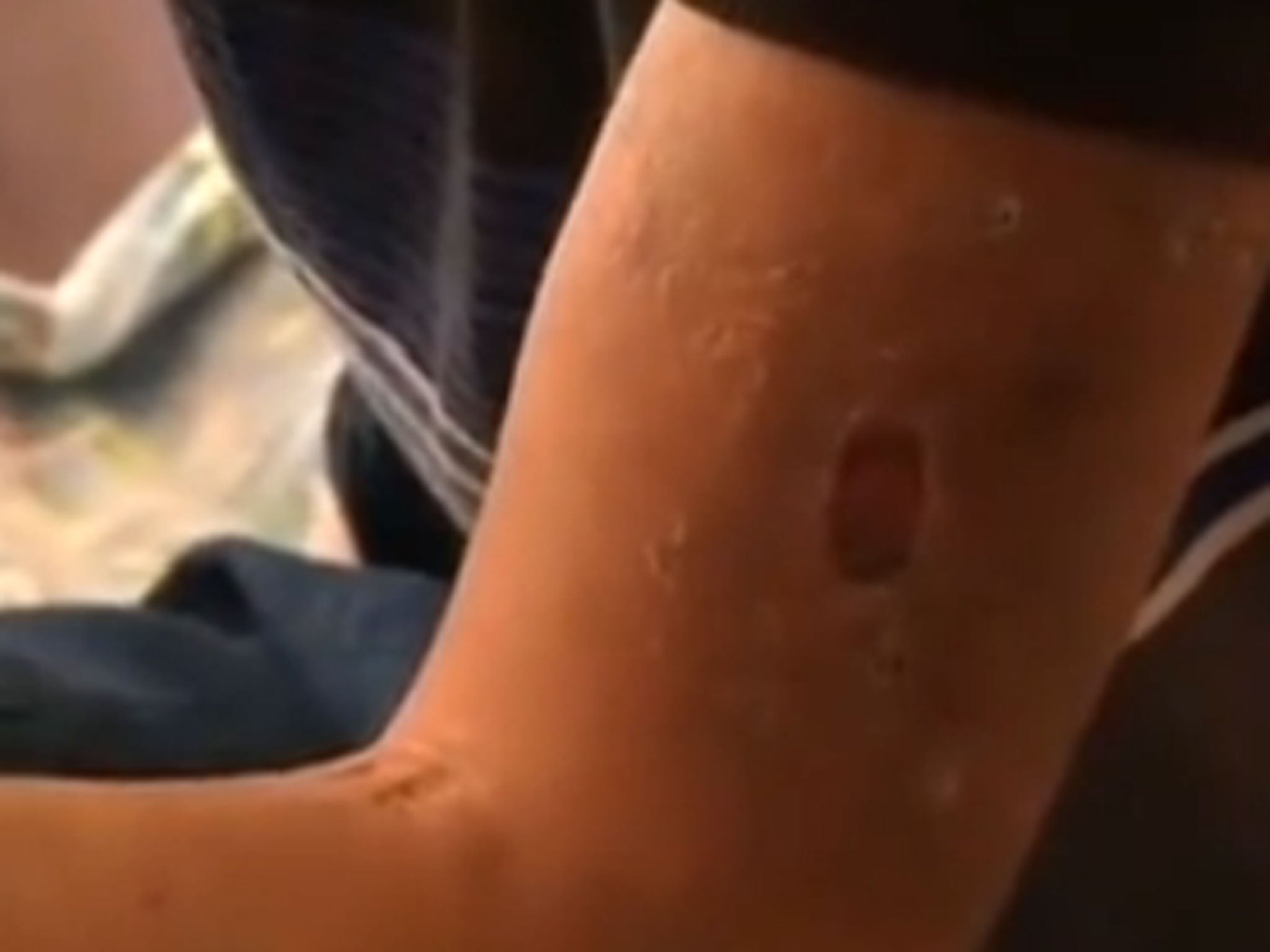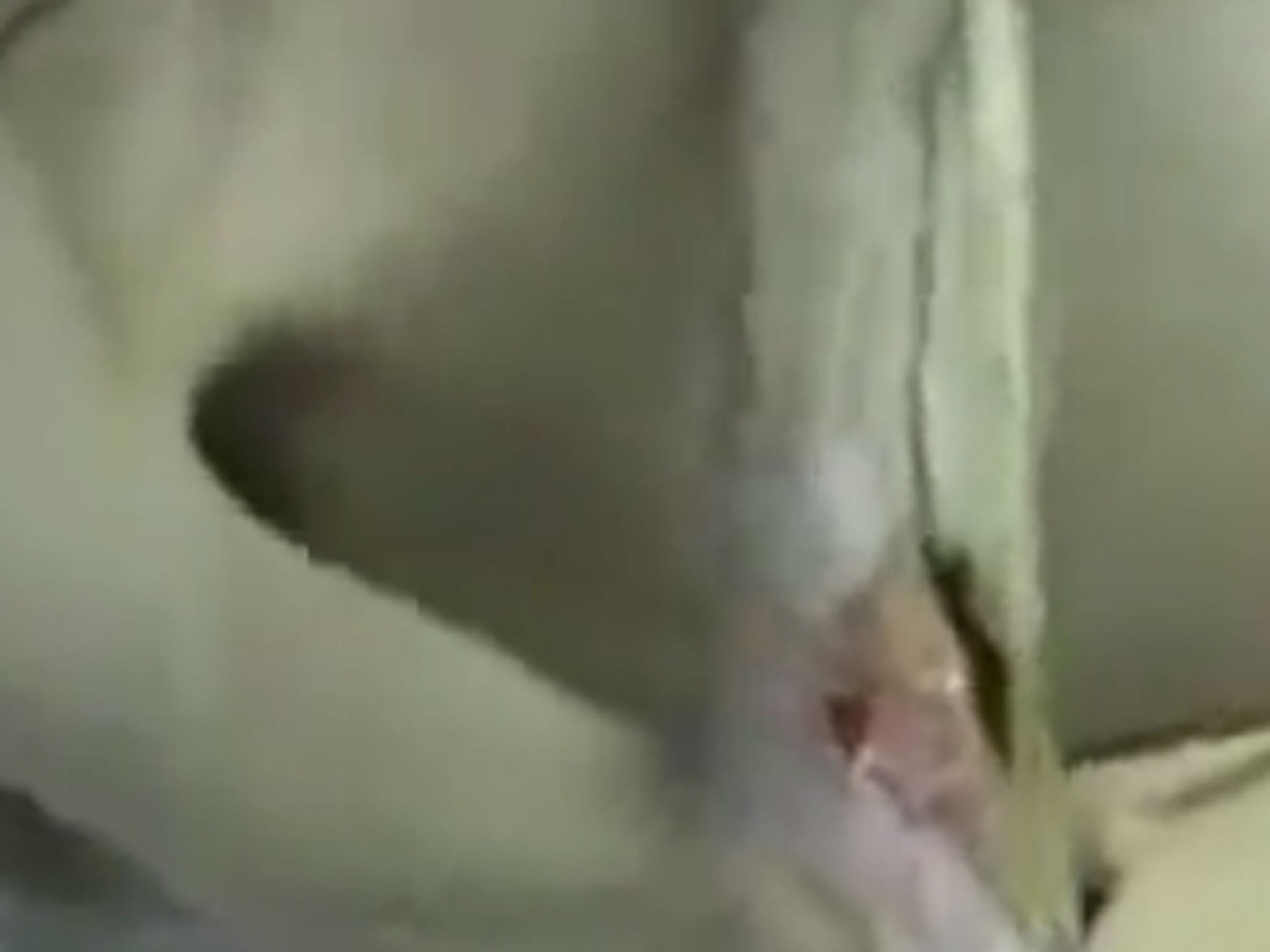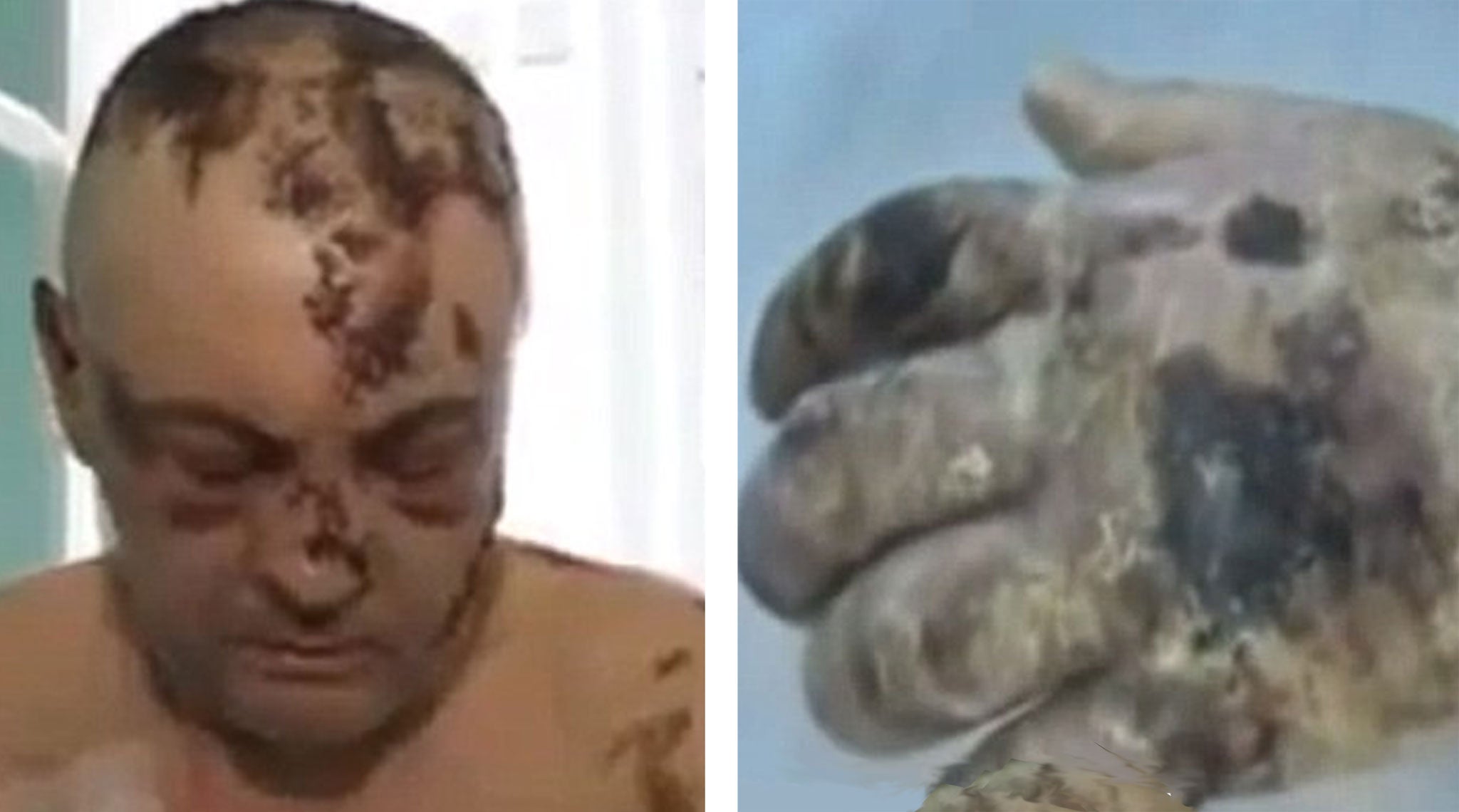Your support helps us to tell the story
From reproductive rights to climate change to Big Tech, The Independent is on the ground when the story is developing. Whether it's investigating the financials of Elon Musk's pro-Trump PAC or producing our latest documentary, 'The A Word', which shines a light on the American women fighting for reproductive rights, we know how important it is to parse out the facts from the messaging.
At such a critical moment in US history, we need reporters on the ground. Your donation allows us to keep sending journalists to speak to both sides of the story.
The Independent is trusted by Americans across the entire political spectrum. And unlike many other quality news outlets, we choose not to lock Americans out of our reporting and analysis with paywalls. We believe quality journalism should be available to everyone, paid for by those who can afford it.
Your support makes all the difference.Krokodil – the cheap heroin substitute that rots the flesh of addicts, usually killing them within two years – is believed to have made the switch to the US after a number of cases were reported in Arizona.
Officials in the state fear they may be seeing the beginning of an epidemic after two people in just one week attended hospitals suffering the devastating symptoms of the drug.
Krokodil – real name desomorphine - is an ultra-cheap heroin substitute that counts crushed codeine pills, gasoline, cooking oil, iodine, paint thinner and lighter fluid among its toxic ingredients.
The drug, which has become extremely popular in Russia in recent years, gets its name from the stench and reptilian texture it gives to an addict’s skin before it eventually eats it away completely, often leaving a user's bones exposed.

As well as its rancid ingredient list and devastating effects, krokodil is also highly addictive and short-lasting – meaning many addicts exist in a never-ending cycle of drug consumption and drug preparation.
The Arizona cases came to light after Dr Frank LoVecchio – the co-medical director at Banner Poison Control Center – told the Phoenix-based news service KPHO that he had dealt with two cases over the last seven days.
Dr LoVecchio said: “As far as I know, these are the first cases in the United States that are reported. So we're extremely frightened.
He added: “They extract [the drug] and even though they believe that most of the oil and gasoline is gone, there is still remnants of it. You can imagine just injecting a little bit of it into your veins can cause a lot of damage… it eats you from the inside out”.

Although the two reported cases are believed to have been related, there are fears that the fact it has already spread as far as Arizona may suggest the US is likely see a large number of addicts over the coming years.
“Where there is smoke there is fire, and we're afraid there are going to be more and more cases,” Dr LoVecchio added.

Although it has the same mental effects as heroin, krokodil’s incredibly cheap ingredients – all of which can be purchased legally in corner shops and supermarkets in Russia – cause dramatic and devastating consequences in a user’s body.
Many addicts suffer brain damage and speech impediments from the drug, but it is from the fact it often causes blood vessels to burst - leaving strong-smelling gangrenous wounds to fester on the body - that krokodil acquired its sinister name and reputation.

The average krokodil user has a life expectancy of just two to three years after they start taking the drug, and in that time they can expect their skin to turn green, scaly and fall-off as a kind of pre-death decomposition sets in.
Dr Allan Harris believes he has seen one case of Krokodil abuse in the UK before. Read his warning here.
In 2011 The Independent visited Russia to find out more about the krokodil epidemic sweeping the country. Read that article by clicking here.

Join our commenting forum
Join thought-provoking conversations, follow other Independent readers and see their replies
Comments